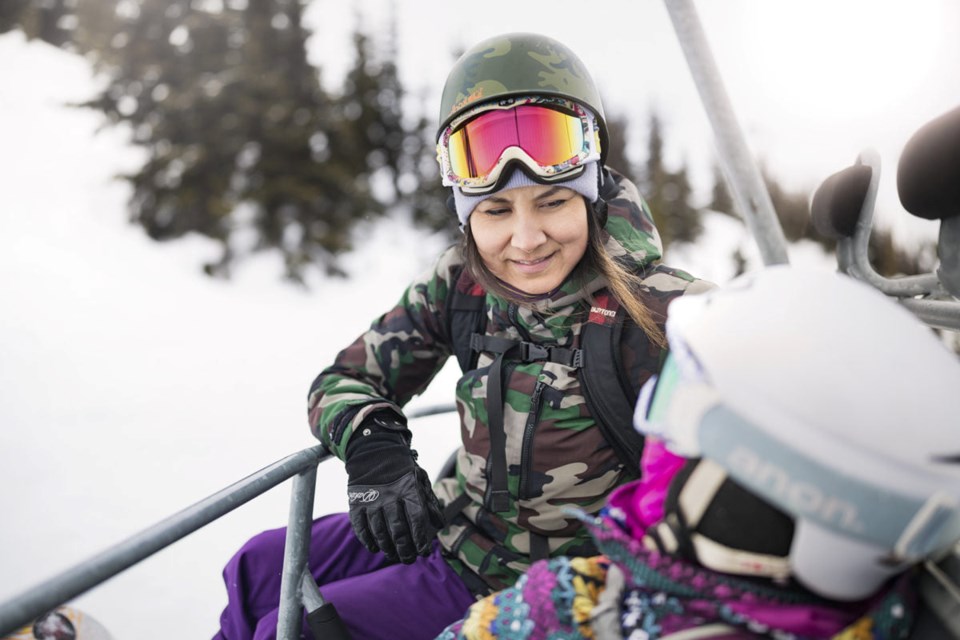It would stand to reason that the non-profit groups working on the ground to better their communities would be the best suited to understand and identify where their biggest needs lie. But for a long time, the prevailing thought in the charitable world—at least among donors—was that you hand out funding for specific, measurable needs rather than general operational costs.
“Having unrestricted funding really allows [non-profits] to put their money where they need it most at that time. That seems so obvious but it’s so important,” explained Claire Mozes, executive director of the Whistler Community Foundation (WCF), which has granted money to charities across the Sea to Sky since 1999.
With the COVID-19 pandemic tightening purse strings and shining a light on social inequalities far and wide, donors are increasingly realizing the benefit of trusting non-profits to determine where they need support the most and allowing them to stay nimble through a trying period.
Take Zero Ceiling, the Whistler-based non-profit that provides supportive housing and employment to vulnerable young adults and has seen demand for its Work 2 Live program skyrocket over the past 18 months. The charity has recently inked a deal with retail franchise evo* for US$20,000 a year in unrestricted grant funding over three years.
“It’s the only multi-year funding that we have confirmed at the moment, so firstly, it’s the stability that that provides. That’s money that we don’t have to go and find in the three years and we can focus our energy elsewhere on developing our programs and expanding all the other work we’re doing,” said Lizi McLoughlin, Zero Ceiling’s development manager. “But in addition, what’s really great about this funding is it’s for our general operating fund, so we can use it for whatever we need to do to keep the organization running.”
Along with helping non-profits be more nimble in managing needs as they arise—which in the past year of uncertainty, has proven invaluable—unrestricted funding also allows organizations to think beyond their current reality.
“I think it gives them a chance to dream a little, think a little and plan a little more for the future,” Mozes said, adding that the WCF has also shifted its funding model over the years to allow charities to apply for operational grants.
It’s a wider shift being seen in the non-profit world that ultimately trickles down to the end user. At evo, the company has switched its funding to a completely multi-year, unrestricted model, and has even foregone grant applications altogether, a sign of the trust and close ties it tries to forge with the groups it works alongside.
“There have been really big learnings and takeaways over the last year in the context of a global pandemic,” said Ashley Miller, evo’s senior manager of community impact. “There is a real push in conversation around how we are shifting resources to BIPOC-led organizations, grassroots organizations that have that deep investment and connection to the community. It’s this kind of idea that the folks who are impacted are also the ones who know what they need.”
An important component of evo’s giving is developing a deeper grasp on the work its funding partners do. The company has recently agreed to provide US$33,000 a year over three years to the Indigenous Life Sport Academy (ILSA), which teaches “unstructured” sports such as snowboarding, skiing, biking and rock climbing as a way to empower Indigenous youth, as well as collaborating on a skateboard deck design.
“evo has really made it so we were able to not only sustain, but we were able to survive this period,” said ILSA founder and executive director Court Larabee. “We’ve never had a company outside of our resort partners that have been so supportive of us and our mission, and they just believe in what we do because they understand that skateboarding and snowboarding and other unstructured sports save lives. That’s really what it’s all about.”
evo also recently eschewed the grant process altogether for another Sea to Sky non-profit, Indigenous Women Outdoors (IWO), covering the cost of ski and snowboard rentals and gear after the organization reached out to them. IWO was also the recent recipient of a $50,000 “no strings attached” BIPOC grant from the Vancouver Foundation it landed not through filing a bunch of paperwork, but through an oral interview.
“They’re really paving a new way forward for grants,” said IWO founder Myia Antone.
Miller said it’s part and parcel for any funder that truly wants to not only be a part of the community they work in, but better it while they’re at it.
“I’m really excited these conversations are happening, because we believe that the community is best served if we see ourselves as part of a larger ecosystem,” she said.
“So the more we’re talking about how we are all investing to build a just society, the more likely we are to actually see it.”
*An earlier version of this story incorrectly listed funder evo as the car-sharing service of the same name, not the outdoor retailer.






